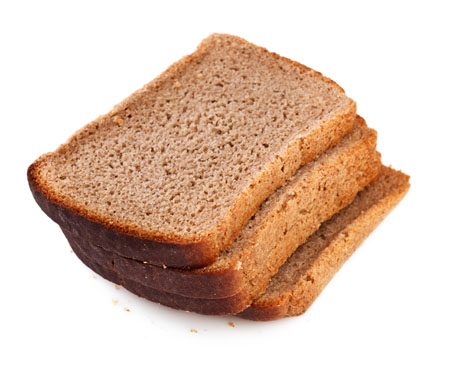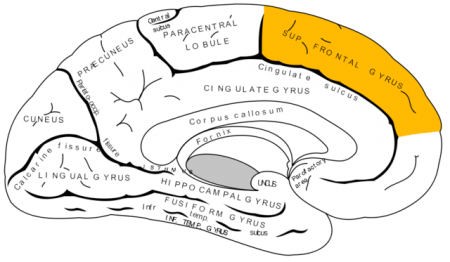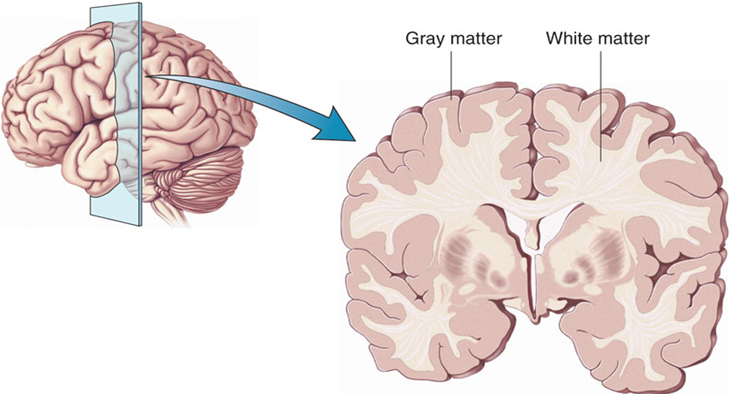Obesity is associated with reduce cortical thickness in bipolar disorders
Sean R. McWhinney et al reported in Psychological Medicine (2023) that obesity was associated with reduced cortical thickness (but not surface area) in most areas of the brain in 2832 participants.
Editors Note: Patients and clinicians should try to prevent and reduce weight gain using the best tolerated medications from the outset and helping with weight loss by various measures. These can include the anticonvulsants topiramated and zonisamine, the combination of bupropion and naltrexone, and the use of new anti-diabetic drugs such as Jardiance and Farxiga that have weight loss (greater than with metformin) as a side effect. Prescribing a good diet and regular exercise is also indicated. Reducing obesity will likely make you live longer and maybe could even make you smarter.
Lithium Reverses Thinning of the Cortex That Occurs in Bipolar Disorder
In a 2018 article in the journal Molecular Psychiatry, researcher Derrek P. Hibar reported findings from the largest study to date of cortical gray matter thickness. Researchers in the ENIGMA Bipolar Disorder Working Group, which comprises 28 international research groups, contributed brain magnetic resonance imaging (MRI) from 1837 adults with bipolar disorder and 2582 healthy control participants.
Hibar and colleagues in the working group found that in adults with bipolar disorder, cortical gray matter was thinner in the frontal, temporal, and parietal regions of both brain hemispheres. They also found that bipolar disorder had the strongest effect on three regions in the left hemisphere: the pars opercularis, the fusiform gyrus, and the rostral middle frontal cortex.
Those who had had bipolar disorder longer (after accounting for age at the time of the MRI) had less cortical thickness in the frontal, medial parietal, and occipital regions.
A history of psychosis was associated with reduced surface area.
The researchers reported the effects of various drug treatment types on cortical thickness and surface area. In adults and adolescents, lithium was associated with improvements in cortical thickness, and the researchers hypothesized that lithium’s protective effect on gray matter was responsible for this finding. Antipsychotics were associated with decreased cortical thickness.
In people taking anticonvulsant treatments, the thinnest parts of the cortex were the areas responsibly for visual processing. Visual deficits are sometimes reported in people taking anticonvulsive treatments.
Folate Fortification in Commercial Foods Led to Greater Cortical Thickness
 In 1996, the US began to require that enriched cereal grain products be fortified with folate, a vitamin that is particularly important to fetal brain development. A new study of children born before and after this policy change suggests that the increased folate in commercial foods after 1996 led to increases in cortical thickness in the children born after the change.
In 1996, the US began to require that enriched cereal grain products be fortified with folate, a vitamin that is particularly important to fetal brain development. A new study of children born before and after this policy change suggests that the increased folate in commercial foods after 1996 led to increases in cortical thickness in the children born after the change.
At the 2016 meeting of the Society of Biological Psychiatry, Joshua L. Roffman and colleagues described their research into the effects of folate fortification. The researchers identified 3,309 children born between 1993 and 2001 who had had a magnetic resonance imaging (MRI) brain scan. Analysis of the scans showed that children born after folate fortification began had thicker cortices than those born before the change. The frontal and temporal regions of the brain were particularly affected.
A thin cortex is a risk factor for schizophrenia and other cognitive problems.
Editor’s Note: Folate supplementation has also been shown to enhance the effects of selective serotonin reuptake inhibitor (SSRI) antidepressants in adults with lingering symptoms of depression.
Up to a third of the population may have a deficit of MTHFR, an enzyme important for folate metabolism, and for these people, l-methylfolate is recommended rather than folate itself.
Lithium Increases Cortical Thickness in People with Bipolar Disorder
 Recent studies have indicated that bipolar disorder is associated with changes to brain volume, including thinning of the cortex. In research presented at the 2016 meeting of the Society of Biological Psychiatry, researcher Noha Abdel Gawad reported that four weeks of lithium treatment increased cortical thickness in the left superior frontal gyrus. This is the third replication of this finding.
Recent studies have indicated that bipolar disorder is associated with changes to brain volume, including thinning of the cortex. In research presented at the 2016 meeting of the Society of Biological Psychiatry, researcher Noha Abdel Gawad reported that four weeks of lithium treatment increased cortical thickness in the left superior frontal gyrus. This is the third replication of this finding.
Other research has established that lithium treatment also increases the volume of the hippocampus in people with bipolar disorder. Together the findings provide strong evidence that lithium treatment protects neurons and can reverse brain changes associated with bipolar disorder.


